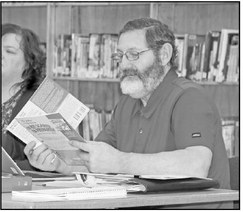What about a second breakfast?


Lake Holcombe School Board
Although it’s still in the planning stages, superintendent Kurt Lindau brought an idea before the Lake H...


Lake Holcombe School Board
Although it’s still in the planning stages, superintendent Kurt Lindau brought an idea before the Lake H...